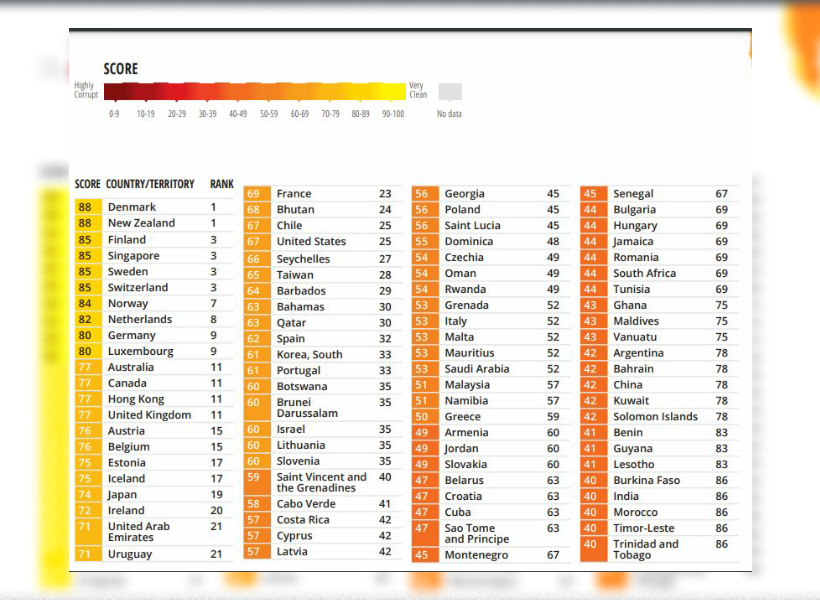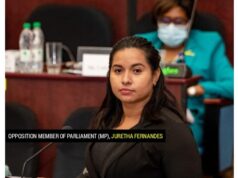Last year, Guyana saw a marginal decline in its performance on Transparency International’s Corruption Perceptions Index (CPI). The index, which ranks 180 countries and territories by their perceived levels of public sector corruption according to experts and businesspeople, uses a scale of zero to 100, where zero is highly corrupt and 100 is very clean.
With this in mind, Transparency International said that Guyana received a score of 41 out of 100. In 2019, it had received 40. The new oil-producing state shared this score with Benin and Lesotho. The trio also ranked 83 on the index.
The top countries on the CPI are Denmark and New Zealand, with scores of 88, followed by Finland, Singapore, Sweden, and Switzerland, with scores of 85 each.
The bottom countries are South Sudan and Somalia, with scores of 12 each, followed by Syria (14), Yemen (15) and Venezuela (15).
Since 2012, 26 countries improved their CPI scores, including Greece, Myanmar and Ecuador. In the same period, 22 countries decreased their scores, including Lebanon, Malawi and Bosnia and Herzegovina.
Like previous years, more than two-thirds of countries scored below 50 on this year’s CPI, with an average score of just 43. The data perused by Guyana Standard shows that despite some progress, most countries still fail to tackle corruption effectively. In addition to earning poor scores, it was observed that nearly half of all countries have been stagnant on the CPI for almost a decade. Transparency International said that these countries have failed to move the needle in any significant way to improve their score and combat public sector corruption.
ABOUT TRANSPARENCY INTERNATIONAL
Transparency International is a global movement working in over 100 countries to end the injustice of corruption. It focuses on issues with the greatest impact on people’s lives and holds the powerful to account for the common good. Through its advocacy, campaigning and research, this international watchdog works to expose the systems and networks that enable corruption to thrive, demanding greater transparency and integrity in all areas of public life.











